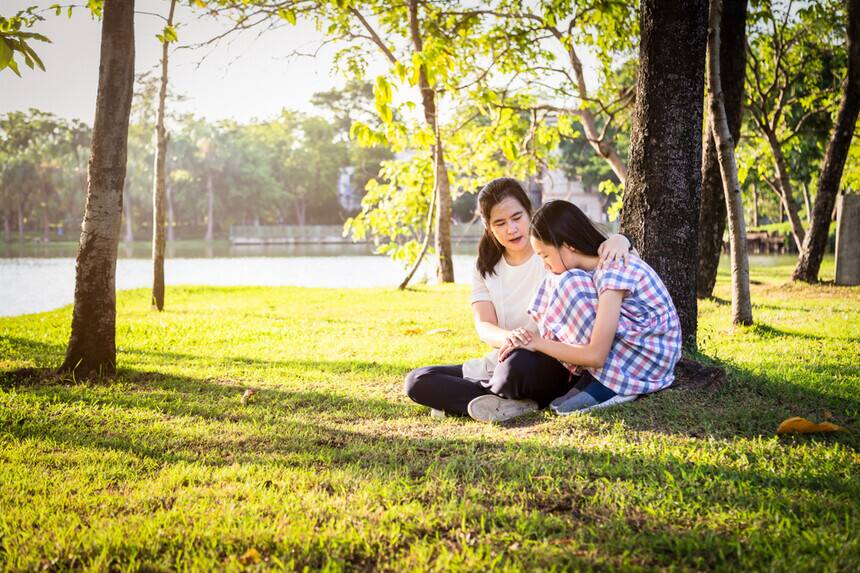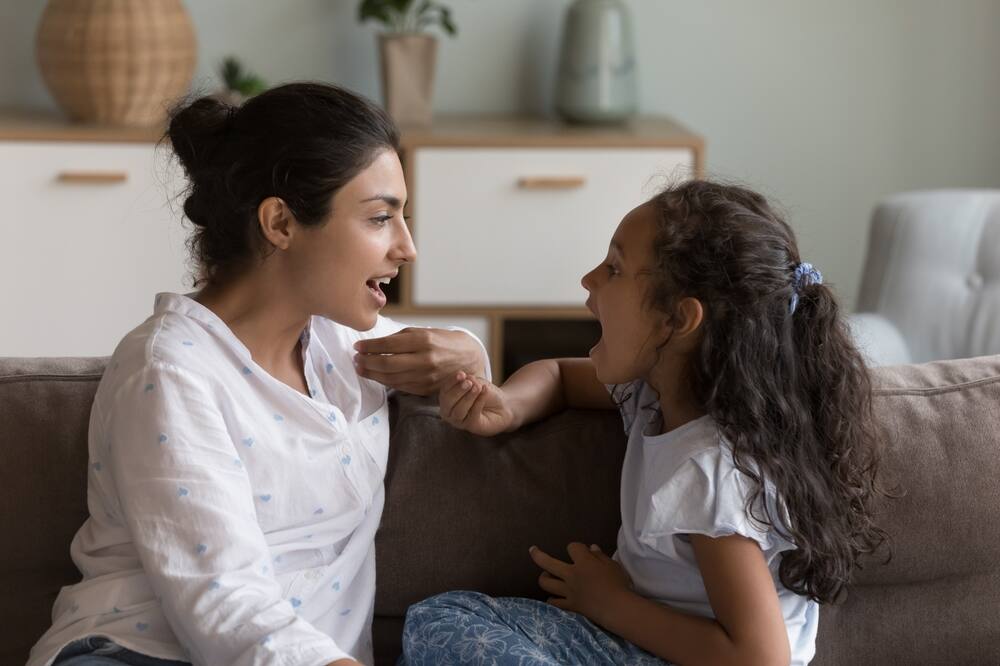Parental Expectations: How Much Is Too Much For The Child?
Having a child and becoming a parent is perhaps ‘the biggest’ milestone and one of the greatest joys of an adult's life! However, as soon as the young baby turns into a toddler (2-3 years of age) parents often start wanting to make the child a ‘trophy’ to showcase to the world, and here is where the young ones’ journey of a gazillion classes begins.

Recalling Some Experiences
I recall meeting a parent in the recent past whose 4-year-old got a poor report card from school (pre-KG) because she was not able to write the numbers from 1 to 10, and it was almost as if the mother had failed. She was upset, crying, and angry with herself for not being able to spend enough time with the ‘little’ one to memorise the numbers. She beat and ridiculed the child and then felt guilty about her own behaviour saying, ‘She is just a baby, I am such a horrible mum!’. It was heart-wrenching!
Another time, the receptionist said I had my youngest client turning the waiting room upside down (at a tender age of 3.6 years) and evidently the child didn’t ‘need counseling’. It was the parents' anxiety that needed validation as the child was not able to learn classical music and the music teacher said maybe she should revisit it in a couple of years as she wasn’t showing clear signs of enjoyment, unlike the other kids in the batch. They wanted to know if their child had ADHD and I enquired how a ‘label’ would help.
Insights From Parenting Research
Parenting research suggests that Asian-heritage parents have an uncanny wiring (almost something that surfaces unconsciously) to raise children in an authoritarian parenting style (extremely strict, rigid, with high expectations from the child, intense focus on discipline, controls, and obedience rather than nurturing. Mistakes are punished punitively, feedback is often negative, and shout-fests and corporal punishments are common). Asian parents also have high expectations from their children to excel in academics and extracurriculars, and do well professionally, later in their lives.
Knowing Their Struggles
Life of a 14-15-year-old adolescent can be really tough. They ain’t children anymore and nor are they adults as yet. Their bodies are trying to cope with numerous physical changes with the onset of puberty, in addition to intellectual, emotional, and social development. This is challenging, conflicting, and a struggle for both the parent and the child. Remember, we are the adults in the equation and need to help them to become emotionally resilient and regulated journey of becoming responsible young adults.
 Help Your Child Become Emotionally Resilient
Help Your Child Become Emotionally Resilient
How Much Is Too Much?
How much is too much for children in Classes 8-11 (13-16-year-olds), who already have their plates spilling over with the vast academic syllabus to pay attention to (in the post-Covid era with an evident learning gap), peer pressure, teachers’ and parental expectations to live with, be loved and approved by their after-school teachers and trainers across sports, extracurriculars and hobby classes, in addition to all the emotional drama that they go through every single day? They also have many age-appropriate distractions of relationships and friendships, television and smartphone binging, shows, music, sports teams to love and follow, and their hobbies and interests to pursue.
It is absolutely our role to provide stimulation, guidance, and many opportunities to our children for them to discover their likings and dislikings – from doing advanced math to theatre, music, dance, fitness, sports, painting, volunteering opportunities, outdoor exposure, learning different languages, robotics, money, and finance handling – how much is enough and who decides what is?
Convey Expectations Reasonably
Set the intention and a reasonable expectation via healthy conversations at home about how they need to pick their after-school activities to enhance their profile and portfolio for college admissions. Encourage them to explore what interests them and learning what skills will set them apart from the others in their peers and friends’ circle. They need to be intrinsically motivated to go to these classes and can use all the encouragement that you can possibly provide.
Also Read | 8 Mistakes you should avoid making with your teenage child
Let Them Take Ownership
Expose your child to new activities but please get them to decide and sign up for them. They need to take complete ownership and responsibility for the classes that they want to try and check out. They need to commit on the dotted line. Can they? Absolutely!!! They are smart and capable of staying committed, disciplined, and consistent should they enjoy the course and the facilitator. Give them that freedom to choose and decide.
Convey Your Struggles Too
It is a stage of exploration and experimentation and yes, many a time as parents we feel that a lot of money is going in paying the fee for these classes ; that we are ‘giving into’ their current fixations and fads ; that they lack consistency and are all over the place ; that too many hobbies and interests are being chased and changed as finding an appropriate dress for a fancy party. But, just go with the flow and have an open, two-way conversation with your child. Talk about your concerns. Don’t get all aggressive and authoritative but hear them out and try and look at their reasons – objectively. Let them know what their classes cost. The travel arrangements and the pick-ups and drops are also not easy to manage and schedule for working parents.
However, the flip side is that many children appear to be happy with the classes on the surface of it but in reality, struggle to enjoy, learn, and give them their best because the activities they’re in were never their choice to begin with itself, and this really does defeat the purpose.
 Talk About Your Concerns With Your Child As Well
Talk About Your Concerns With Your Child As Well
Respect Their Decisions
Respect their decision to join a class or drop out after they plan and schedule their school work. Most certainly it helps with building some life skills, especially decision-making, time management, effective communication, problem-solving, developing interpersonal relationships, self-awareness, and coping with stress and emotions. Sports or fitness class, a creative class (writing, music, performing arts), and some hobby class are definitely something that can be easily scheduled if the child sets their heart on it.
Help Them Attain Balance
The basic conflict that adolescents go through at this stage is ‘developing a personal identity and a sense of self’. Anything that they experience success with gets them to be true to themselves while failure leads to a lot of confusion and a weak sense of self that makes them feel unsure, inadequate, and inferior. Help your children and support them to become confident, well-rounded, and balanced adults.
Make sure you are your child’s biggest cheerleader all through their journey – from childhood to teenage and adulthood. Balance your expectations and see your child becoming the best, most balanced version of themselves.
Also Read | 8 Healthy Ways You Can ‘Give Space’ To Your Teenager
Nandini Raman is a Consultant Counselor; Corporate Trainer; and Columnist with a leading English newspaper. She contributes to a successful weekly column on career guidance and choices. With more than fifteen years of experience in the field, Nandini is guest faculty at many prestigious schools, colleges and training institutions. She is a hands-on parent to two teenagers. Nandini can be reached at www.iamfine.in
Applications for Admissions are open.
As per latest syllabus. Physics formulas, equations, & laws of class 11 & 12th chapters
JEE Main Important Chemistry formulas
Get nowAs per latest syllabus. Chemistry formulas, equations, & laws of class 11 & 12th chapters
JEE Main high scoring chapters and topics
Get nowAs per latest 2024 syllabus. Study 40% syllabus and score upto 100% marks in JEE
JEE Main Important Mathematics Formulas
Get nowAs per latest syllabus. Maths formulas, equations, & theorems of class 11 & 12th chapters
